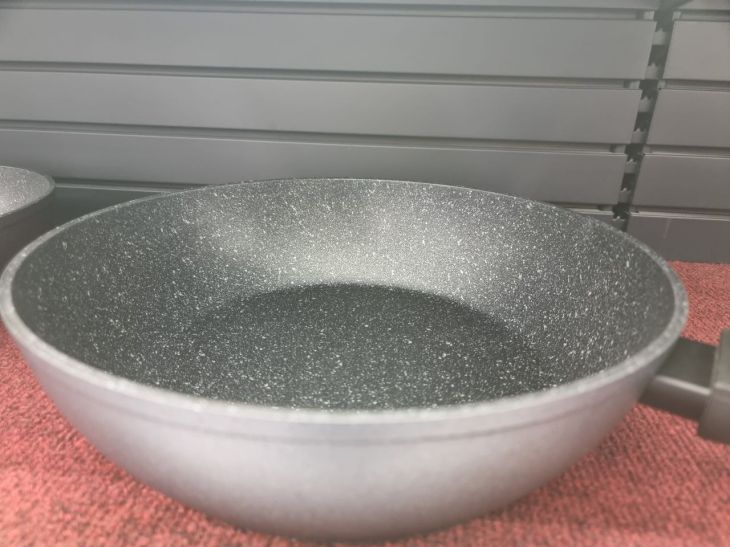To avoid damaging the non-stick coating: how to properly clean a frying pan
Most people actively use non-stick pans.
They are distinguished by their functionality and significantly simplify the cooking process.
However, it should be no secret to most people that these pans are easily damaged during washing. Therefore, it is worth remembering a few important rules that should always be followed.
Use of soft materials
The first rule when cleaning a non-stick pan is to avoid abrasive materials. This includes metal pads or hard brushes, which can damage the coating.
It is recommended to use a soft sponge or special napkins for frying pans. Also, under no circumstances should you use sharp or hard objects to get rid of food particles. In this case, the probability of damaging the frying pan is 100%.

Use of delicate detergents
When choosing a detergent for a frying pan, you should prefer soft and delicate options that do not contain abrasive particles. This will avoid damaging the coating.
High temperatures are not allowed
The non-stick coating of the pan is not designed for high temperatures. Avoid overheating the pan by cooking food on medium or low heat. This will help maintain the integrity of the coating.
An easy way to ruin your frying pan is to put it on the fire for a few minutes and not start cooking.
Instant wash after use
A good habit is to wash the pan immediately after each use. This will prevent food residue from hardening and will make the cleaning process easier. In most cases, rinsing the pan is sufficient.
Natural remedies
If you don't have a special non-stick dishwashing detergent on hand, you can use natural products such as baking soda or vinegar.
They can help remove grease and stains without damaging the finish. However, be careful with baking soda, as it can be called a kind of abrasive.
Earlier we told you why housewives put bay leaves in the washing machine. It turns out that this is a very simple solution for soft and fragrant laundry .
